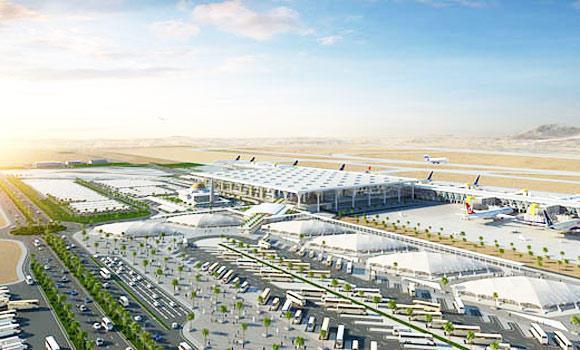
Madina, Oct 2: A metro station and a public bus station will be established at the newly constructed Prince Muhammad International Airport (PMIA) in Madinah, Mamdouh Tarabishi, CEO of the airport, has said.
The SR4.5 billion expansion project will be completed by 2015.
He said the metro and rapid bus transport system would facilitate the transport of pilgrims from the airport to the Prophet’s Mosque.
“The two transport systems will also be linked with the Haramain Railway that connects Makkah and Madinah,” he added.
Tarabishi described PMIA as the first environment-friendly airport in the Middle East. “It will be designed in the form of palm trees, one of the special features of Madinah,” he said, and added that he expected more flights to be operated to and from Madinah following the project’s completion.
“The airport’s tarmac is designed to receive modern aircraft,” the CEO said, adding that the airport would receive flights of 45 airlines during this Haj season. The airport will have 16 air bridges for passengers to board the aircraft. He said an airport fee of SR80 would be imposed on passengers using the airport. “The old airport will be used for support services following the completion of the new airport.”
In a related development, Najran Gov. Prince Mishaal bin Abdullah said the new Najran Airport was ready to receive international flights. Aviation authorities have already licensed an airline to operate international flights from the airport. The airport has parking bays for six aircraft and three air bridges.





Comments
Add new comment